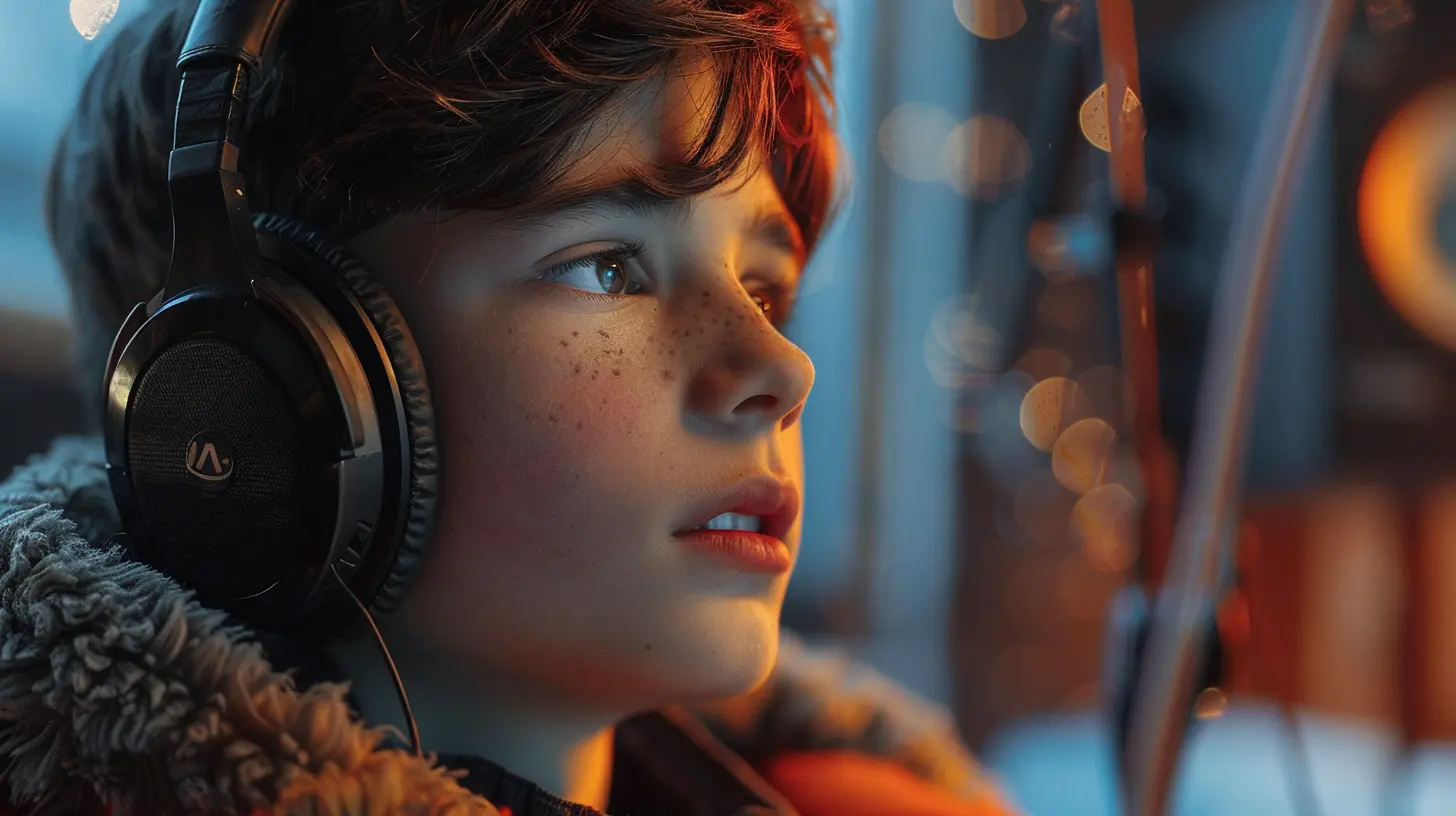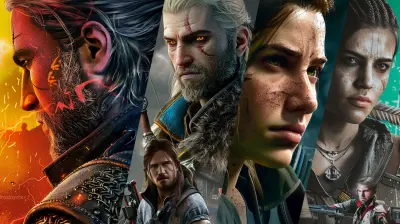How Voice Acting Enhances Player-Character Connection
7 August 2025
Gaming has come a long way from the days of pixelated sprites and beeping soundtracks. Today, video games are immersive experiences, rich with stories, worlds, and characters that we can't help but care about. One of the most powerful tools developers use to build this emotional connection is voice acting. Yep, the way a character speaks, their tone, their delivery—it all plays a huge role in making us feel something deeper. But how exactly does voice acting draw us closer to the characters we interact with? Let’s dive in! 
Why Voice Acting Matters in Modern Games
Think about your favorite video game character. Got one? Now imagine playing that same game without their voice. Weird, right? Voice acting brings an extra layer of personality to characters that written text or animations just can't replicate. It's like the difference between watching a silent movie versus a blockbuster with a killer sound design.Voice actors breathe life into characters, making them feel real. They convey emotions, motivations, and subtle dynamics that we, as players, subconsciously pick up on. When done well, voice acting makes the world more alive, and the characters more relatable. Who doesn’t love an NPC that feels like a genuine person? 
The Emotional Power of Voice
Voice acting is like seasoning on a dish—it amplifies everything. A simple line of dialogue can hit completely differently depending on how it’s delivered. Think about a character saying, “I’m fine.” If spoken softly, it might sound like they’re hiding pain. But if it's yelled, it could scream frustration or anger.This emotional nuance is what makes voice acting so crucial. A great actor can make even the most fantastical character—be it a dragon, robot, or sentient piece of toast—feel grounded. Players can sense the frustration in Kratos' gruff growls in God of War or the raw vulnerability in Ellie’s trembling voice in The Last of Us. These moments linger with us, creating unforgettable gaming experiences. 
Adding Depth to Storytelling
Let’s be honest: gaming is more than just shooting enemies or solving puzzles. The best games tell gripping stories, and voice acting is often the glue that holds them together. Voice actors add texture to the narrative, making the dialogue feel natural and authentic instead of something pulled from a script.Imagine playing a story-heavy RPG like Mass Effect or The Witcher 3 with silent characters or text-only dialogue. Sure, the plot would still come through, but those gut-punch emotional moments wouldn’t land nearly as hard. Geralt’s deadpan delivery, Shepard’s inspiring speeches, or even a snarky one-liner from a companion—these moments shine because of the voice behind them. 
Building a Stronger Player-Character Bond
Here’s the thing: we don’t just play video games; we connect with them. And voice acting plays a huge role in building that connection. When a character speaks to us, they feel more like a person and less like a digital puppet.Think of games where you make choices that affect the storyline. A heartfelt plea from a character could tug at your heartstrings, influencing your decisions in ways a text box never could. In Life is Strange, for instance, the voice performances added a deep emotional weight to every choice you made. You weren’t just making decisions—you were making them for someone you cared about.
Voice acting also helps build trust between the player and the character. When we hear sincerity in a protagonist’s voice or humor from a sidekick, it makes us feel like they’re our allies in this virtual journey.
Voice Acting for Villains: Making Us Love to Hate Them
Let’s not forget the baddies! Some of the most iconic villains in gaming wouldn’t be nearly as memorable without their voice acting. Could you imagine Far Cry 3’s Vaas without Michael Mando’s chillingly erratic delivery? Or Portal’s GLaDOS without her sharp, sarcastic quips?A good voice actor can turn a simple antagonist into a multi-dimensional character. They make us furious, intrigued, or sometimes even empathetic toward the villain’s motives. Voice acting gives villains humanity—or sometimes, the perfect lack of it—that makes them unforgettable.
The Rise of Performance Capture
Voice acting in games has evolved. It’s not just about sitting in a booth and recording lines anymore. Today, many games combine voice acting with motion capture to create performances that are even more lifelike. Performance capture records an actor’s facial expressions, body movements, and voice all at once, bringing characters to life in stunning detail.Think of Red Dead Redemption 2—the characters’ voices, combined with their natural movements and facial expressions, made it feel like we were watching an interactive movie. This technology bridges the gap between player and character even more, making their struggles, joys, and pain hit us right in the feels.
The Challenges of Bad Voice Acting
But let’s keep it real: not all voice acting is great. Sometimes, it’s downright bad. Stilted delivery, mismatched emotions, or awkward pacing can break immersion faster than you can say “NPC dialogue loop.”Remember the infamous "Jill sandwich" line from the original Resident Evil? It became a meme, but not for the right reasons. Bad voice acting can make characters feel lifeless—or worse, unintentionally hilarious. That’s why casting the right actors and investing in quality voice direction is so important.
In short, good voice acting enhances our connection with the game; bad voice acting can pull us out of it entirely.
A New Era for Player-Character Interaction
Voice acting in games isn’t just about delivering a script. It’s about creating experiences. With the rise of AI companions, adaptive storytelling, and open-world games that react to player input, voice acting is becoming even more dynamic.Imagine a future where NPCs respond to your voice commands with natural dialogue or where every decision you make changes how characters interact with you. The possibilities are endless, and voice acting will be at the heart of this evolution.
Why We Remember the Voices
In the end, it’s the voices we remember. You might forget the finer details of a game’s plot, but you’ll always remember that one line delivered with perfect emotion, or that character who felt like a real friend.Voice acting bridges the gap between the virtual and the real. It makes us laugh, cry, and feel connected to worlds that don’t physically exist. And as gaming continues to innovate, voice acting will only become more important in shaping how we experience stories.
all images in this post were generated using AI tools
Category:
Voice Acting In GamesAuthor:

Aurora Sharpe
Discussion
rate this article
2 comments
Avery McAuley
Great insights on the importance of voice acting in gaming! It truly enriches the player experience and deepens the emotional connection to characters. Well done!
January 24, 2026 at 5:30 AM
Thornefield McCaffrey
Great article! Voice acting truly brings characters to life, deepening the emotional connection between players and their avatars. It's fascinating how a well-delivered line can transform gameplay experience. Thanks for sharing!
August 18, 2025 at 2:32 AM

Aurora Sharpe
Thank you! I’m glad you found the article insightful. Voice acting really does play a crucial role in enhancing the player's emotional journey!


